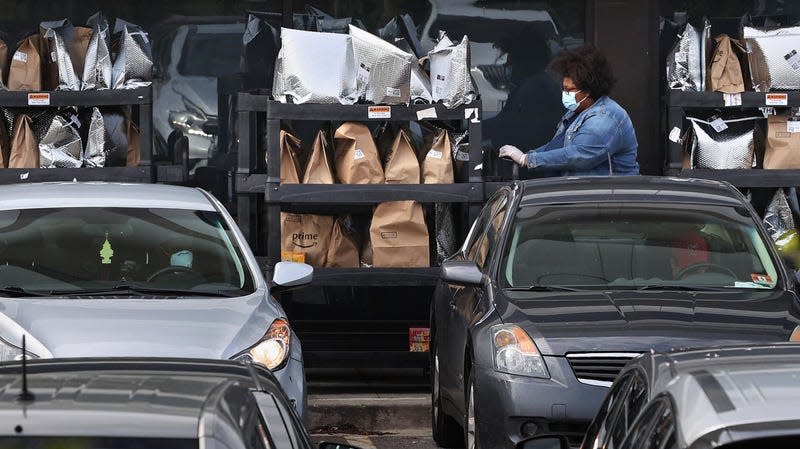Amazon Sued for Allegedly Stealing Driver's Tips, Launches New Gamified Tipping System

This holiday season, Amazon says it will pay its delivery workers an extra $5 every time a customer tells their Alexa smart speaker to thank their driver. That sounds like a nice gesture until you realize Amazon’s allegedly spent years redirecting or stealing tips intended for many of those very same drivers.
Those tip stealing allegations are the central claim in a new lawsuit filed by Washington D.C. Attorney General Karl A. Racine, who alleges the company engaged in an “illegal scheme” to withhold tips from its FLEX delivery drivers and trick consumers in the process. Those withheld tips, according to Racine, were then used to subsidize the company’s own labor costs.
Read more
Racine’s claims hinge on a fundamental change in Amazon’s FLEX tipping policy. In 2015, when the freelance delivery program launched, consumers were encouraged to tip their drivers at checkout via a default presented tip amount. At the time, Amazon users were told 100% of those tips would end up in their drivers’ pocket. Sounds simple enough, however, like most economics related to so-called gig work, Amazon was about to shroud its tipping system in complexity.
In 2016, according to the complaint, Amazon allegedly altered its tipping model so drivers wouldn’t directly receive their tip. Instead, a portion of a driver’s tip would funnel directly back to Amazon, which would then use those funds to pay a portion of the pre-tipped wage Amazon promised to pay its workers. Amazon, according to the complaint, diverted a portion of those tips to “subsidize its own labor costs without actually increasing driver compensation.” All the while, the complaint alleges, Amazon was still telling customers 100% of their tips were going to drivers.
Amazon addressed its tip manipulation in a 2021 settlement with the Federal Trade Commission. In that case, Amazon agreed to pay the agency $61.7 million to account for the swindled funds. The FTC started paying out impacted drivers last year by way of 139,507 checks and 1,621 PayPay payments. Average impacted drivers received $422, as part of the settlement, with nearly 20,000 drivers receiving payouts in excess of $600. At the time, an Amazon spokesperson told Gizmodo they disagreed with claims suggesting their tipping was unclear but were nonetheless “pleased to put this matter behind us.”
Those payouts, according to Racine, simply weren’t enough since the multi-trillion-dollar company “has thus far escaped any other consequences.” With the new suit, Racine wants to force Amazon beyond paying restitution to drivers and instead cough up civil penalties for deceiving its customers and violating D.C.’s Consumer Protection Procedures Act. Those consumer protections prohibit companies from misleading consumers or making misrepresentations. Additionally, the lawsuit calls for a court order barring Amazon from engaging in those practices in the future.
“When a company is caught stealing from its workers, it is not enough for the company to repay the amount stolen,” the lawsuit reads. “Stealing from workers is theft, and significant penalties are necessary to strongly disincentivize this unlawful conduct.”
Amazon spokesperson Maria Boschetti acknowledged the lawsuit in a statement sent to Gizmodo.
“Nothing is more important to us than customer trust,” Boschetti said. “This lawsuit involves a practice we changed three years ago and is without merit. All of the customer tips at issue were already paid to drivers as part of a settlement last year with the FTC.”
All of that may be true, but Amazon’s statement still fails to grapple with Racine’s claim that the company engaged in a campaign to hide the truth about the tipping from its customers and workers.
“This suit is about providing workers the tips they are owed and telling consumers the truth, Racine said in a statement. “Amazon, one of the world’s wealthiest companies, certainly does not need to take tips that belong to workers. Amazon can and should do better.”
More from Gizmodo
Sign up for Gizmodo's Newsletter. For the latest news, Facebook, Twitter and Instagram.

